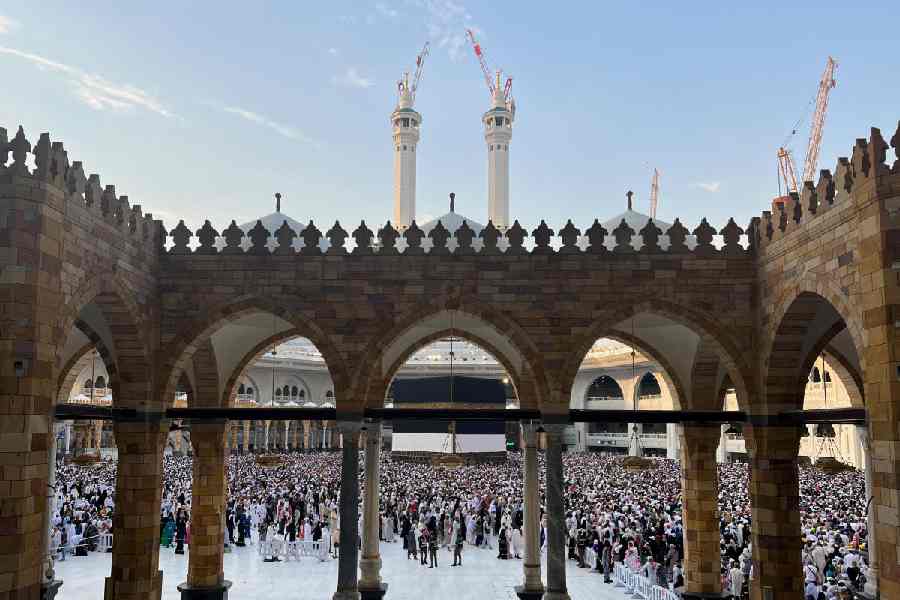Climate change intensified the deadly heatwave that claimed the lives of at least 550 Haj pilgrims in Saudi Arabia, making it 2.5 degrees Celsius warmer, according to a rapid analysis by an independent group of climate scientists and researchers.
Natural variability likely played a minor role, they said.
Large parts of the eastern Mediterranean and the Middle East have endured extreme temperatures over the past few weeks. Media reports said that at least 550 pilgrims died during the annual Haj pilgrimage, which began on Friday, with temperatures at Mecca's Grand Mosque reaching a scorching 51.8 degrees Celsius.
According to the reports, the deceased included 323 Egyptians, 98 Indians, 60 Jordanians, and five Iranians.
The analysts at ClimaMeter, an EU-funded initiative, described it as a "very uncommon" event.
"We ascribe the extreme temperatures of the Saudi Arabia heatwave to human-driven climate change, with natural climate variability likely playing a minor role," they said.
This year, over 1.8 million Muslim pilgrims were expected to arrive, according to the Saudi General Authority for Statistics.
Saudi Arabia's health ministry has attributed the fatalities to pre-existing conditions and the vulnerable health of the pilgrims.
Scientists from ClimaMeter, who conduct rapid analyses on the role of climate change in extreme weather events using satellite observations, concluded that heatwaves such as the one in Saudi Arabia are up to 2.5 degrees Celsius warmer today than at the turn of the century.
Davide Faranda, a ClimaMeter researcher at CNRS, France, said: "ClimaMeter's report highlights that the deadly heat during this year's Hajj is directly linked to fossil fuel burning and has affected the most vulnerable pilgrims." "Immediate action is imperative to safeguard the health and safety of Middle East citizens and pilgrims. Only reducing fossil fuel combustion can prevent reaching critical temperature thresholds and avoid transforming these significant religious events into recurrent tragedies," he added.
Tommaso Alberti, a ClimaMeter researcher from Italy, said: "The analysis indicates that natural climate variability is highly unlikely to be the main cause of the Saudi Arabian heatwave, which was up to 2.5 degrees Celsius warmer than the warmest heatwaves previously observed in the region." "It is crucial to prepare for the growing intensity and frequency of such events. This calls for urgent actions to protect public health, particularly in historic and densely populated religious areas of Middle Eastern cities," he said.
With the Earth's global surface temperature already 1.15 degrees Celsius above the average in 1850-1900, climate scientists say countries need to take urgent action to reduce heat-trapping greenhouse gas emissions by at least 43 percent by 2030 (compared to 2019 levels) to limit warming to 1.5 degrees Celsius.
Developing nations argue they cannot be expected to reduce CO2 emissions faster if developed countries -- historically responsible for climate change -- do not provide enhanced financial support.
Climate finance will be at the centre of the UN climate conference in Baku, Azerbaijan, where the world will reach the deadline to agree on the New Collective Quantified Goal (NCQG) -- the new amount developed nations must mobilize every year starting in 2025 to support climate action in developing countries.
Rich countries are expected to raise more than USD 100 billion, with developing countries demanding trillions of dollars to tackle climate change.
Except for the headline, this story has not been edited by The Telegraph Online staff and has been published from a syndicated feed.











